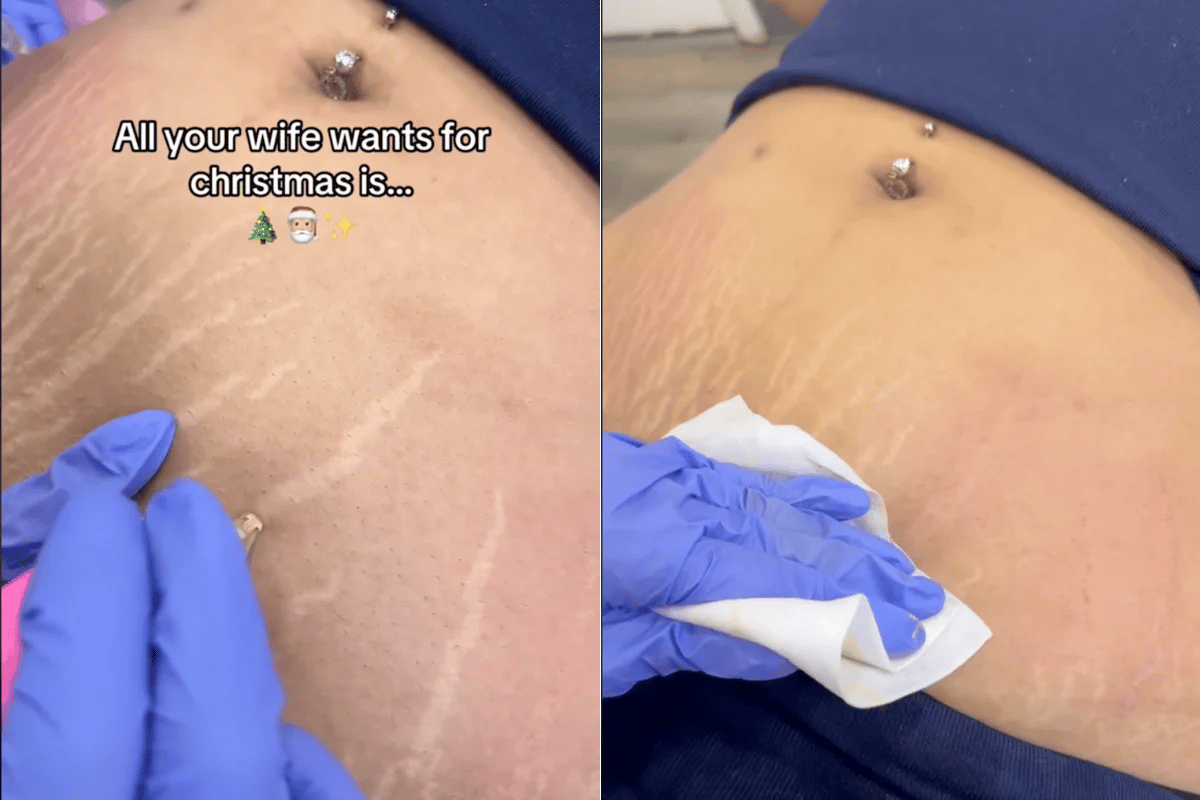
In the '90s, amid a culture obsessed with crash diets and achieving the "perfect" body, this ad might have sent women rushing to book an appointment to "fix" yet another insecurity.
But in 2024, we're not taking the bait.
A California-based paramedical tattoo artist known as Stretch Mark Fairy recently released a TikTok ad claiming: "All your wife wants for Christmas is a stretch mark tattoo."
Watch: 'This is all your wife wants for Christmas'. The viral rage-bait ad.
And sorry, what?
No, it's not a tattoo of stretch marks, but rather a tattoo to cover up the (very natural and normal) lines that can appear on bodies.
"We made a skin tone pigment to blend the white stretch marks in with their skin tone to camouflage their stretch marks," the artist explained.
Cue the collective eye roll.
Because, if this ad was designed to spark controversy, it's just not working. We're not taking the bait. And neither were people on TikTok.
Instead, the comments section became a celebration of stretch marks, body positivity, and the kind of self-love that so many in society have been working to achieve.
"My stretch marks represent my babies and the amazing job my body did carrying them," one user wrote.




























































































